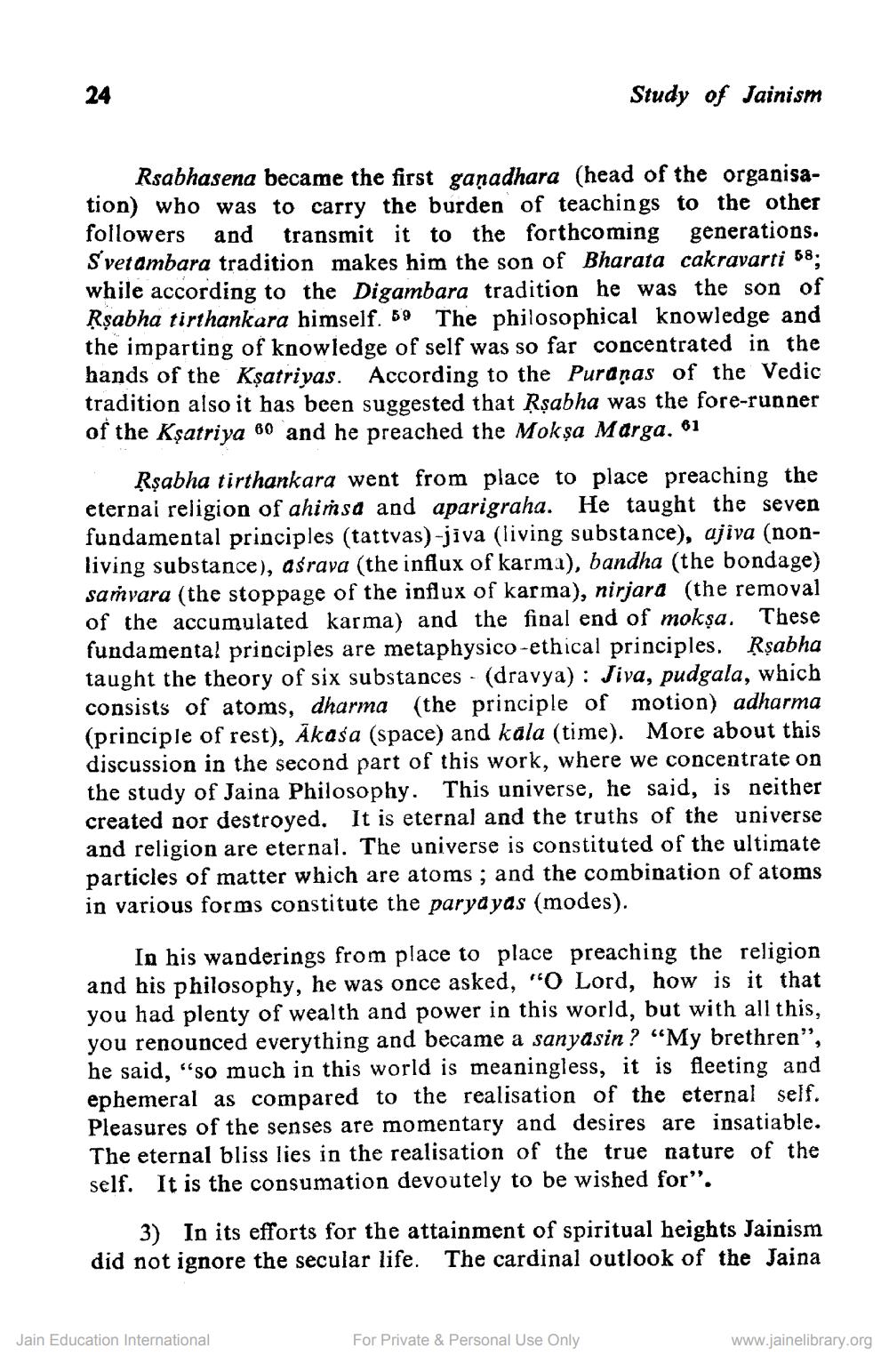________________
24
Study of Jainism
Rsabhasena became the first ganadhara (head of the organisation) who was to carry the burden of teachings to the other followers and transmit it to the forthcoming generations. Svetambara tradition makes him the son of Bharata cakravarti 58; while according to the Digambara tradition he was the son of Rşabha tirthankara himself. 69 The philosophical knowledge and the imparting of knowledge of self was so far concentrated in the hands of the Ksatriyas. According to the Puranas of the Vedic tradition also it has been suggested that Rşabha was the fore-runner of the Ksatriya 60 and he preached the Mokşa Marga. 61
Rşabha tirthankara went from place to place preaching the eternai religion of ahimsa and aparigraha. He taught the seven fundamental principles (tattvas)-jīva (living substance), ajiva (nonliving substance), aśrava (the influx of karma), bandha (the bondage) saṁvara (the stoppage of the influx of karma), nirjara (the removal of the accumulated karma) and the final end of mokşa. These fundamental principles are metaphysico-ethical principles. Rşabha taught the theory of six substances - (dravya) : Jiva, pudgala, which consists of atoms, dharma (the principle of motion) adharma (principle of rest), Akasa (space) and kala (time). More about this discussion in the second part of this work, where we concentrate on the study of Jaina Philosophy. This universe, he said, is neither created nor destroyed. It is eternal and the truths of the universe and religion are eternal. The universe is constituted of the ultimate particles of matter which are atoms; and the combination of atoms in various forms constitute the paryayas (modes).
In his wanderings from place to place preaching the religion and his philosophy, he was once asked, "O Lord, how is it that you had plenty of wealth and power in this world, but with all this, you renounced everything and became a sanyasin? “My brethren", he said, "so much in this world is meaningless, it is fleeting and ephemeral as compared to the realisation of the eternal self. Pleasures of the senses are momentary and desires are insatiable. The eternal bliss lies in the realisation of the true nature of the self. It is the consumation devoutely to be wished for".
3) In its efforts for the attainment of spiritual heights Jainism did not ignore the secular life. The cardinal outlook of the Jaina
Jain Education International
For Private & Personal Use Only
www.jainelibrary.org




